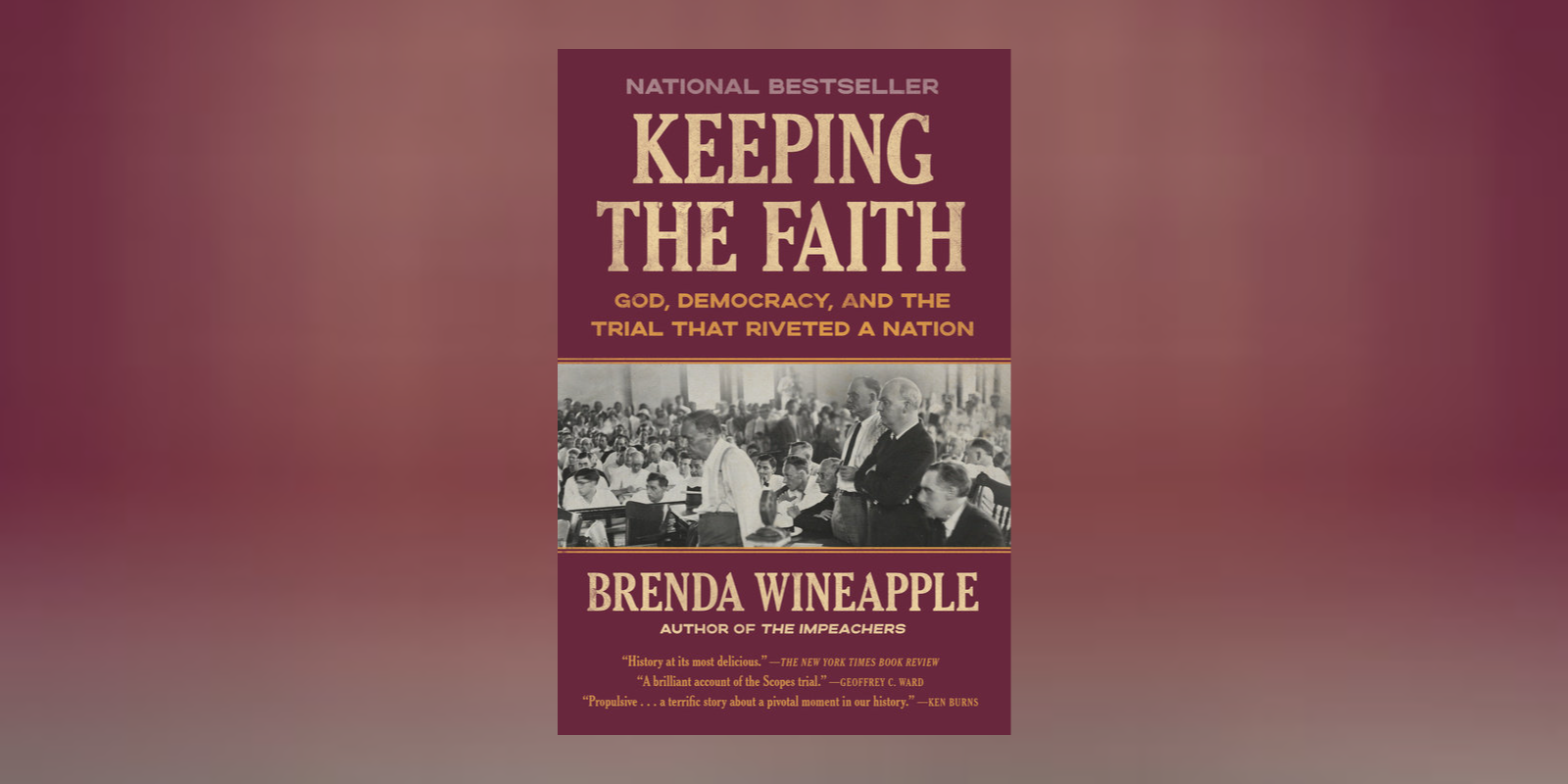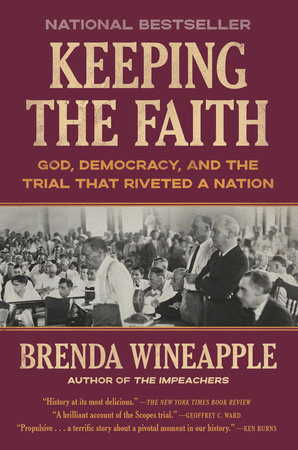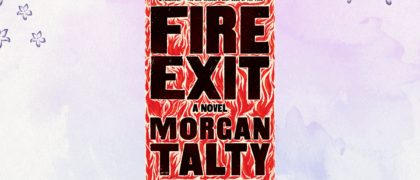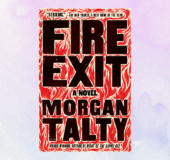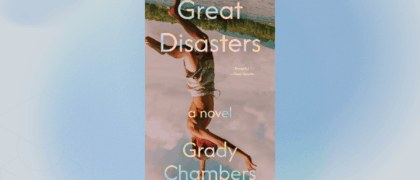Contributed by Brenda Wineapple, author of Keeping the Faith: God, Democracy, and the Trial That Riveted a Nation, which relates how the dramatic story of the 1925 Scopes trial exposed profound divisions in America that still resonate today—divisions over the meaning of freedom, religion, education, censorship, and civil liberties in a democracy.
Trials are inherently dramatic, yet there are certain trials, often called “trials of the century,” that grip the whole nation, for they reveal something important about American culture. That is what attracted me to the Scopes trial in Dayton, Tennessee in 1925. Competing ideas about what it means to be an American and what it means to live here, in a democracy—ideas that still are present and are argued about today—were thrashed out in a courtroom, almost 100 years ago.
What exactly was the Scopes trial? In 1925, the Tennessee legislature passed the Butler Act which banned the teaching of Darwin’s theory of evolution in the public schools. Never mind that the theory of evolution had been around since the middle of the 19th century and had been as accepted as, say, the theory of gravity. Regardless, Christian fundamentalists, who read the Bible literally, said evolution denied the story of creation as told in the Bible. Of course, Darwin had never denied anything and never claimed, as fundamentalists alleged, that people were descended from monkeys.
The Butler Act represented a violation of the Constitution’s guarantee of religious liberty, and so the American Civil Liberties Union offered to defend anyone willing to test the law by breaking it. John Scopes, a young biology teacher in Dayton, Tennessee, stepped up, saying you can’t teach biology without teaching evolution. He was immediately indicted.
His trial became front page news all over the country, and much of the world.
I begin all my books with a question. In The Impeachers, I wrote about the first-ever impeachment of an American president, Andrew Johnson, in 1868. In Keeping the Faith, I asked why the Scopes trial was front-page news coast to coast and covered internationally. It even found its way into Hemingway’s novel The Sun Also Rises.
And the Scopes trial became a showdown between two larger-than-life figures, rock stars in their own time, who felt called to battle: William Jennings Bryan, a three-time nominee for the U.S. presidency and former Secretary of State, who said he would duel to the death on behalf of Christianity, which he believed was under attack; the theory of evolution, he declared, would turn children into cold-hearted atheists. Then the famous criminal lawyer Clarence Darrow, an agnostic, volunteered to defend Scopes pro bono, saying the Tennessee law robbed Americans of important freedoms: the freedom to think independently, to learn, to question, and to worship or not to worship as one saw fit. As such, the Butler Act was not just a direct assault on science but, to Darrow, it represented the prejudices that for decades had led, in America, to deportations, lynchings, and terror.
In other words, the Tennessee law was symbolic. For at its core, it was about change, and how people either embrace it or resist it. The world had been changing rapidly: women had just gotten the vote, more and more immigrants had entered the country, Black Americans were prospering in the North, and the Ku Klux Klan had revived its campaign of terror. Science was spawning new technologies that brought the world closer—with radio, telephones, movies, and the airplane. At the same time, the country had just been though World War I, a brutal war in which science had led to killing on a scale never before imagined.
The issues being argued at the trial, then, weren’t about religion and science per se. Something greater was at stake: “to show,” as the brilliant attorney Arthur Garfield Hays argued, “that such laws result in hate and intolerance, that they are conceived in bigotry and born in ignorance—ignorance of the Bible, of religion, of history, and of science.”
To me, then, the Scopes trial dramatizes burning issues relevant today: whether government can mandate belief or control knowledge; how religion and science can be used to fight for and against women’s health and reproductive rights; the way religious and racial bigotry result in violence; and the fear that one’s neighbor may not look like or worship like oneself. There is also the fear—with AI, with climate change—that life as we know it may soon be unsustainable or unrecognizable. Which is to say that the Scopes trial has something to teach us in the present, beyond what happened back then; like all such trials, it’s about the here and now.

